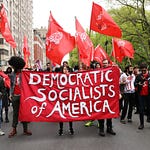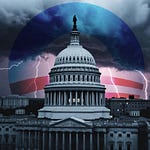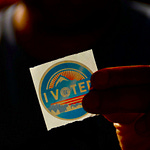In contemporary America, a disturbing trend festers within the Black community: a reckless dependence on violence as the go-to method for settling disputes, paired with an arrogant sense of entitlement that shamelessly excuses such behavior. This problem is glaringly exposed by crime statistics and the flood of social media videos showcasing Black individuals, especially women, unleashing physical aggression in situations that scream for restraint or rational dialogue.
The facts, when honestly examined, reveal a cultural decay that sabotages the community’s advancement, cements damaging stereotypes, and demands unflinching, brutal self-scrutiny.
Crime statistics lay bare an uncomfortable truth. The FBI’s 2019 Uniform Crime Report shows Black individuals, making up 12.2% of the US population, accounted for 51.2% of murder arrests, 52.7% of robbery arrests, and 28.8% of burglary arrests.
The incarceration rate for Black Americans is equally lopsided, with 600 per 100,000 Black individuals in jails compared to 184 per 100,000 for Whites. While poverty and systemic inequities contribute, they do not fully justify the knee-jerk resort to violence. This pattern points to a much deeper cultural defect that begs examination, one that persists beyond external pressures and signals entrenched behavioral norms that border on the savage.
Social media platforms magnify this reality, with a continuous stream of video clips of Black individuals erupting into public brawls over petty issues—restaurant orders, airline seats, and minor slights. The 2021 Miami International Airport melee, where Black individuals descended into chaos over a seating dispute, is a textbook case, ending in arrests and public disgust.
These episodes, frequently featuring Black women, reveal a brazen eagerness to escalate conflicts physically, often backed by loud claims of untouchability. The “Strong Black Woman” archetype, once a symbol of resilience, has been twisted in some circles to glorify indignant belligerence, as if violence is a valid flex of power or defiance. This distortion betrays the archetype’s roots and fuels a destructive spiral.
The community’s response to criticism betrays its hubris. Instead of soul-searching, there’s an ignorant knee-jerk rejection of accountability, with cries of racism or victim-shaming flung at anyone daring to call out these proven trends. This cowardice smothers honest discussion and entrenches violence as an acceptable reflex, perpetuating a cycle that tarnishes the community’s image and fractures its unity. The deluge of social media footage—Black women brawling in stores, streets, or schools—validates a stereotype of volatility that the community should be dismantling, not reinforcing.
Media consumed within the Black community stokes this fire. Certain music genres—rap and gangster rap, to be specific, dripping with violent misogyny, and films glorifying gang life and vengeance, craft a worldview where physical confrontation is a mark of pride. Not all Black cultural output endorses this, mind you, but the dominance of such themes in mainstream media is undeniable. When lyrics fetishize retribution, violence, and cop killing, and movies lionize lethal street justice, they quietly validate violence as a default, especially for vulnerable youth starved for better role models.
The fallout is nothing short of catastrophic. Gun violence devastates Black communities, with Black Americans 12 times more likely than Whites to die by firearm homicide. Black women endure staggering rates of intimate partner violence, with 40% facing domestic abuse in their lifetimes. These numbers aren’t just data sets—they represent shattered families, traumatized children, and neighborhoods locked in cycles of violence, anguish, and revenge. Normalizing violence guts the vitality of Black communities, spiking healthcare costs, tanking property values, and eroding social bonds. Beyond material tolls, it destroys trust, making the Black community’s collective progress toward prosperity and true equality, not equity, a stale pipe dream.
Breaking this cycle requires the Black community to own its role in enabling and perpetuating these behaviors. Leaders must denounce the glorification of violence in media and champion non-violent conflict resolution. Community programs teaching communication, emotional control, and accountability could channel entitled energy into productive advocacy. Rejecting the urge to dodge criticism and embracing raw self-examination are non-negotiable for change.
This rampant violence and falsely inflated sense of entitlement are worsened by systemic failures and self-serving leadership.
The union-controlled public education system, shackled by the National Education Association and American Federation of Teachers, puts teacher job security and extremist ideology over student success, leaving Black youth without the emotional or intellectual tools to resolve conflicts peacefully. Their stubborn resistance to reform breeds frustration and failure, indirectly feeding violent impulses.
Equally guilty are race-baiting and opportunistic Black politicians who milk racial grievances for clout while dodging intracommunity accountability. Figures like US Reps. Maxine Waters (D-CA) and Jasmine Crockett (D-TX) federally, and local leaders like Chicago’s Brandon Johnson and Los Angeles’s Karen Bass, both Democrats, peddle divisive rhetoric and deflectionary excuses that inflate entitlement and sidestep the scourge of internal violence. Their political posturing over real solutions lets this culture of violence fester.
The Black community must reject this systemic inertia and these opportunistic charlatans, seizing its narrative through accountability and honest dialogue; seizing it in an effort to pivot away from the devastating and metastasizing status quo.
Failure to act will doom the community to a grim fate: spiraling violence, mounting mortality numbers, fractured unity, and enduring and even validated stereotypes that will choke progress to true equality and opportunity for decades.
Then, when we return, our segment on America’s Third Watch, broadcast nationally from our flagship station WGUL AM860 & FM93.7 in Tampa, Florida.
In Closing…
Let’s hit on something very important: staying awake—not woke—and involved. Politics, policies, what’s happening out there—it’s not just noise and news clips; it’s the stuff that shapes our days, our towns, our tomorrow. Get in the habit of diving deep. Skip the sensationalistic headlines, challenge the spin, and hunt down the facts. Knowing what’s what gives you the upper hand—it’s how we keep the folks in charge on their toes.
But don’t just soak it all in. Bring it up with your people—your family, your buddies, your coworkers, even the guy next door you just nod at. Share what’s on your mind, not to preach or pick a fight, but to connect. When we talk with real openness, something incredible happens: we realize we’re way more alike than we are different. That’s the truth the Washington players don’t want you to see. They feed off splitting us up, keeping us at each other’s throats. But when we link up, when we hear each other out and find that shared ground, we’re a force they can’t ignore.
So, keep digging and start those conversations. Be the one who builds bridges, not walls. Together, we can show the powers that be we’re not just box checkers on a ballot—we’re neighbors, allies—we’re all Americans, and we are all a part of a united push for real change rooted in what this country was built on.


















